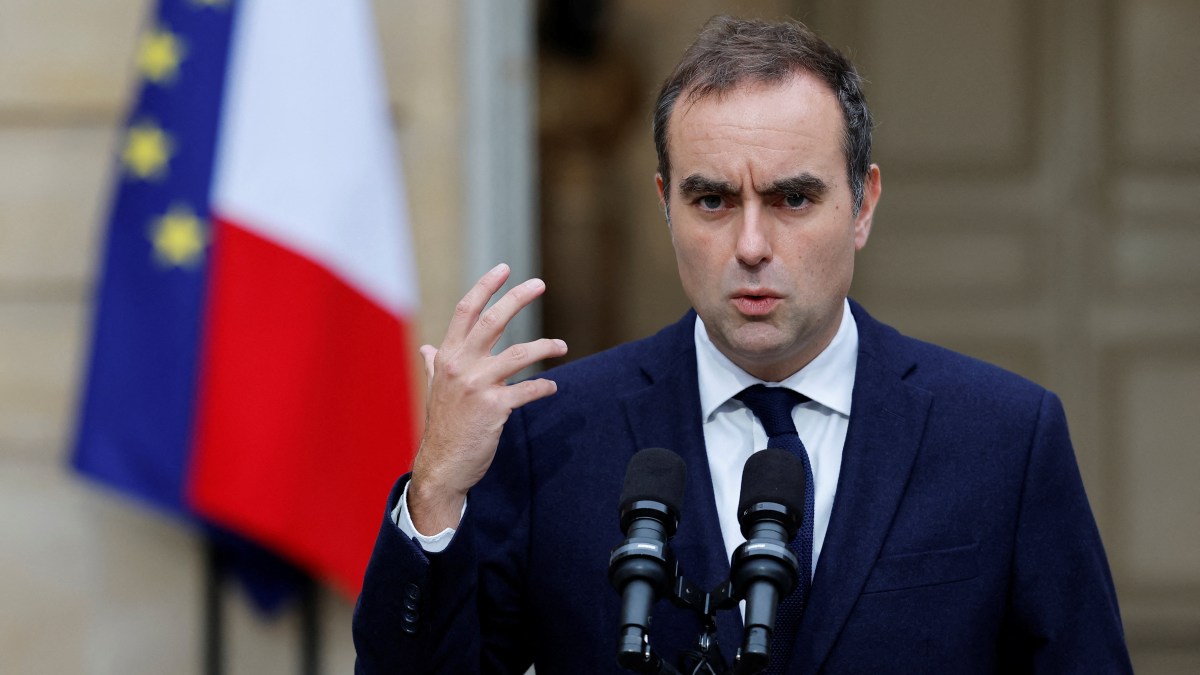The prospect of snap parliamentary elections in France appears to have receded as Sébastien Lecornu, the outgoing prime minister, expressed optimism that a deal could be struck to end the immediate political crisis.
After meeting centrist and conservative leaders in Paris, Lecornu said: “I have good reason to tell you that among the good news … there is a willingness to have a budget for France before December 31.”
Speaking in the courtyard of the Hôtel Matignon, the prime minister’s official residence on the Left Bank, he added: “This desire creates a movement and a convergence, obviously, which removes the prospects of dissolution [of the National Assembly to hold parliamentary elections].”
Lecornu said that he would continue meetings with left-wing parties and would present his findings to President Macron on Wednesday evening.
Lecornu is to hold talks with leaders of the centre-left Socialist Party, the Greens and the Communists, but not with the radical left-wing France Unbowed party, which is led by Jean-Luc Mélenchon and wants to force Macron out of office.
Lecornu said that he would explore what concessions the other parties would be prepared to offer to restore political stability. However, he appeared to rule out scrapping Macron’s fiercely contested pension reforms, which have raised the statutory retirement age to 64, although this has been a key demand of the Socialists and other left-wing groups. The possibility of ditching the policy to placate the opposition had been raised by Élisabeth Borne, the education minister and a former prime minister from Macron’s party, who used to be associated with the Socialists.

President Macron has hinted he may call elections or resign if no deal can be reached
NICOLAS TUCAT/AFP/GETTY IMAGES
Lecornu, Macron’s fifth prime minister in two years, announced his resignation on Monday only 14 hours after appointing his cabinet, which had attracted widespread criticism. He then agreed to stay on until Wednesday at Macron’s request to make a last-ditch attempt to restore stability.
In an apparent effort to calm rising public anger with the political class, Lecornu said his outgoing ministers would not benefit from the financial compensation normally given to former members of government.
• The Times view: France is living beyond its means — that’s the root of political chaos
If he fails, Macron has indicated that he will “accept his responsibilities”, which was interpreted as meaning the president could call parliamentary elections or resign, although he has previously ruled out quitting before his term ends in 2027.
Macron’s popularity has plummeted amid the political instability caused by his disastrous decision to call snap elections last year, which left France with a fragmented parliament in which no party is close to holding a majority.
Efforts to pass an austerity budget to reduce France’s debt and deficit led to the collapse of the two governments that preceded Lecornu’s, one led by Michel Barnier and the other by François Bayrou.
• Rogery Boyes: France’s political collapse is Europe’s problem
An Odoxa opinion poll this week suggested that 70 per cent of French voters wanted Macron to quit.
Some of the president’s own allies have distanced themselves from him. Édouard Philippe, a former prime minister, was among those urging him to resign in the interests of the nation.
